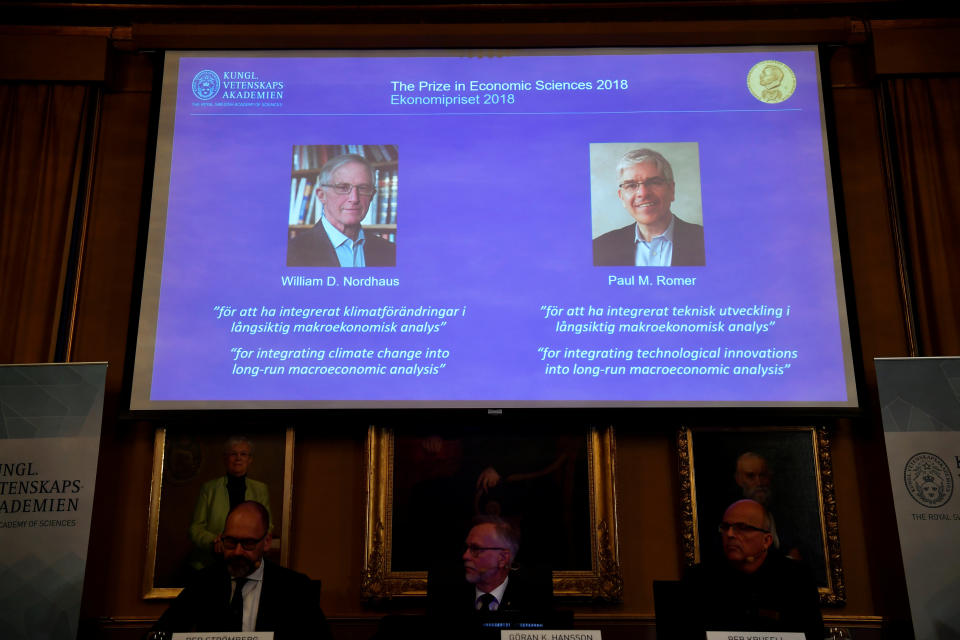The Nobel prize in economics awarded to William Nordhaus and Paul Romer
The 2018 Sveriges Riksbank Prize in Economic Sciences in Memory of Alfred Nobel, more commonly known as the Nobel prize for economics, has been awarded to William Nordhaus and Paul Romer for innovation, climate and economic growth.
Nordhaus hails from Yale University while Romer comes from the NYU Stern School of Business.
The committee said that they “have designed methods that address some of our time’s most fundamental and pressing issues: long-term sustainable growth in the global economy and the welfare of the world’s population.”

Nordhaus’ work examined how to develop economic growth while also combatting climate change.
“His model integrates theories and empirical results from physics, chemistry and economics. Nordhaus’ model is now widely spread and is used to simulate how the economy and the climate co-evolve,” the committee noted. “It is used to examine the consequences of climate policy interventions, for example carbon taxes.”
Romer’s work took a closer look at what drives technological change.
“Previous macroeconomic research had emphasised technological innovation as the primary driver of economic growth, but had not modelled how economic decisions and market conditions determine the creation of new technologies,” the committee said. “Paul Romer solved this problem by demonstrating how economic forces govern the willingness of firms to produce new ideas and innovations.”

In a press conference, the committee added that the duo have given the world methods to tackle some of the globe’s biggest problems by taking macroeconomics to a global scale.
This is the 50th Nobel prize for economics that the institution awarded since 1969. The winner receives a cheque for nine million kronor ($1m), a diploma, and a gold medal, all of which will handed over at a formal ceremony in Stockholm on 10 December.
It marks another year that that none of the world’s leading female economists, such as Esther Duflo and Claudia Goldin, have been recognised. Elinor Ostrom was the only woman to win the economics prize since 1969. She claimed the prize in 2009.
Last year, the pioneer in behavioural economics, Richard Thaler, won the prize, thanks to his “nudge theory,” which has dramatically influenced politicians and policymakers. Essentially, he examined how gut instincts can often overrule rational choices and that people can be influenced by “prompts” to alter their behaviour. For example, by changing the wording on tax demands or organ donation. Thaler previously said: “I wasn’t a great student. My thesis adviser famously said: ‘We didn’t expect much of him’.”
It was widely tipped that research on the climate or development and the impact on the global economy would win the accolade. However, the nominations and deliberations are highly secretive, so it’s hard to truly gauge which way the prize committee would vote.
A report released today (8 October) by the Nobel Prize-winning Intergovernmental Panel on Climate Change said the world has just got 11 years to contain global warming. The landmark report said that “unprecedented” action needs to be taken to prevent 1.5C of global warming by 2030.

 Yahoo Finance
Yahoo Finance 
